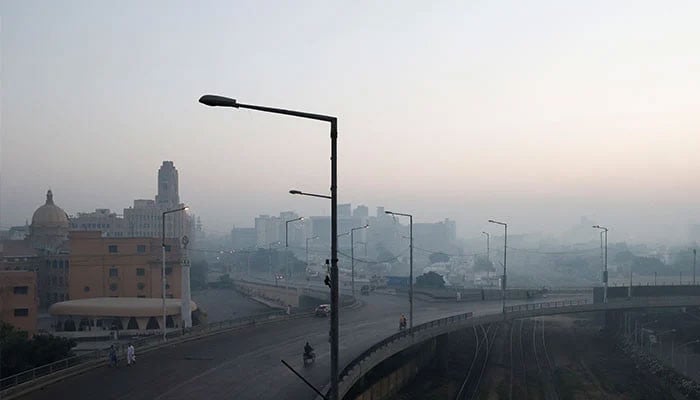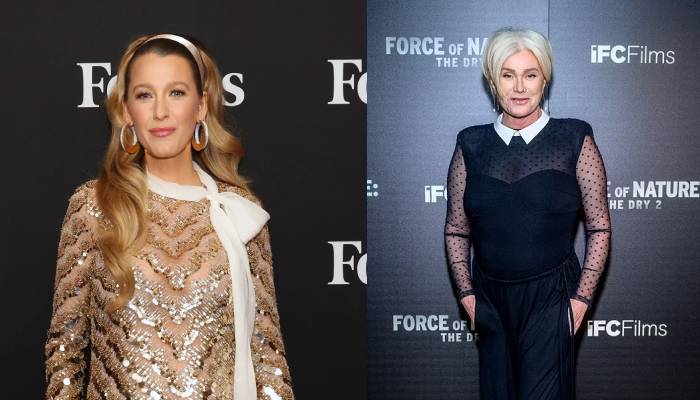Sports
Upward mobility
字号+ Author:Smart News Source:US 2025-01-15 13:32:33 I want to comment(0)
THE main title is misleading: Dear Mr Jinnah. It implies a familiarity between the book’s author Salman Faruqui and the Quaid. In fact, Faruqui was only eight years old in 1947, when he and his family migrated from Patiala state to settle in Sukkur and then in Karachi. He had a forceful academic career and as a student leader in Hyderabad, he interacted with H.S. Suhrawardy and Z.A. Bhutto (then a minister in Ayub Khan’s cabinet). Faruqui sat for the CSS exam in 1961 and after an initial hiccup (he was too outspoken during his viva voce interview, preferring democracy to dictatorship), he was offered the ‘lesser’ Pakistan Customs & Excise Service. He joined it in 1964, then spent his career in sight of those in power — from Ayub Khan’s time until Asif Ali Zardari. One is reminded of the Teflon durability of another public figure — the Russian Anastas Mikoyan. He remained a member of the Communist Party’s Central Committee, surviving at that height for 53 years (from 1923 to 1976). Mikoyan served Lenin, Stalin, Khrushchev and Brezhnev. A contemporary wit suggested once that if one wanted to know who ruled in the Kremlin, look on either side of Mikoyan. Like Mikoyan, Faruqui learned early the principle of survival: “to be politically correct and reticent in his opinions”. He realised that “for a bureaucrat in Pakistan aspiring to reach the top, the best strategy is often not to take risks and/or decisions but to be circumspect in voicing opinions and seeking safe jobs”. Faruqui’s book bemoans the present state of governance. Faruqui’s career became one of upward mobility. His 377-page narrative covers the years he spent in Sindh with G.M. Jatoi and later in Islamabad under M.K. Junejo, Ziaul Haq, Benazir Bhutto, Moeen Qureshi, Nawaz Sharif, and Zardari. Gen Zia gave the young Faruqui a sensitive assignment. He wanted Faruqui to head a specialised unit to handle ‘differently abled’ children. (Zia had a challenged daughter.) Three colonels with such special children were assigned to help him. Benazir Bhutto as prime minister quickly recognised Faruqui’s ability to deliver. She asked him to visit London to learn how the British prime minister Margaret Thatcher organised her office at 10 Downing Street. Despite the well-oiled infrastructure available in Whitehall, Mrs Thatcher said that “at No.10, I have no junior ministers. There is just Dennis and I”. Such knowledge helped him handle the Bhutto-Zardari couple and also navigate the Bhutto-Ghulam Ishaq Khan-Farooq Leghari-Nawaz Sharif whirlpools. During his fluid career in the ministries of communications, commerce, food & agriculture, water & power, and the Planning Commission, decisions taken during his stewardship have had continuing consequences. As Agatha Christie once wrote: “Old sins have long shadows.” For instance, in communications, creation of PTCL and initiation of Gwadar port; in commerce, the Yellow Cab and Yellow Tractor schemes (Faruqui was not amused when his wife was offered a yellow BMW); in food & agriculture, locust control; in water & power, the unbundling of Wapda into 10 Discos, the opening of power generation to the IPPs, and the creation of a top-heavy Nepra. The closing years of his career saw him as Musharraf’s ambassador-at-large and deputy chairman of the Planning Commission, and later Zardari’s personal secretary general. In 1999, Faruqui reached the age of superannuation and reverted to unprotected mortality. He was forced to “run to several government offices to resolve his pension and medical reimbursement issues”. Appeals for help went unanswered. He learned, as an ordinary citizen, how life could be “a slow and unending descent into the heart of darkness”. His closeness to Zardari rescued him from that painful oblivion. He was appointed federal ombudsman in 2012. A mountain of 75,000 unresolved cases confronted him. The Supreme Court might envy the speed of his disposal of 324,000 cases in three years. He left the ombudsmanship in 2017. He quit Islamabad to settle in a modest 300-square yard house in Clifton, Karachi. Faruqui’s book closes with a letter beginning “Dear Mr Jinnah”. It is his version of Milton’s Paradise Lost. It bemoans the present state of governance conducted from “the edge of the precipice”, with “irrational and enduring incompetence”. Faruqui tells Jinnah that his paradise can be regained, our country “made perfect by diligence, hard work, and sound and just moral values”. Understandably, the book avoids mentioning friction between NAB and the two Faruqui brothers Salman and Usman (once chairman Pakistan Steel Mills). Nor does it allude to rumours about the much envied adhesion of the Faruqui family to power. Now in the evening of his life, Faruqui might recognise his recollections in this early verse by the late Khaled Ahmed: “I saw through the filigree of poised self, my crumbling sunsets.”
1.This site adheres to industry standards, and any reposted articles will clearly indicate the author and source;
 Related Articles
Related Articles-
Currency Rates in Pakistan Today – US Dollar, Euro, SAR to PKR – 15 December 2024
2025-01-15 13:09
-
Power tariff likely to rise by 26 paise per unit in December
2025-01-15 12:34
-
Netanyahu says ICC warrant won’t stop Israel defending itself
2025-01-15 12:11
-
IMF okays review of Sri Lanka’s $2.9bn bailout
2025-01-15 11:42
 User Reviews
User Reviews Recommended Reads
Recommended Reads Hot Information
Hot Information- Ousted Syrian president Bashar al-Assad’s wife Asma files for divorce to escape exile
- Govt plans to install 30 air quality monitors across Punjab
- Trump’s mass deportation plan could end up hurting economic growth
- Let’s not provoke Indus fury
- Indian film star Pragya Nagra responds to her Leaked Video
- From The Past Pages Of Dawn: 1974: Fifty Years Ago: Palestine rises
- STREAMING: The Man Behind The Beatles
- Kamal Adwan doctor accuses Israel of using a new type of weapon in northern Gaza
- Gold prices up by Rs1,000 per tola on first day of 2025
 Abont US
Abont US
Follow our WhatasApp account to stay updated with the latest exciting content













